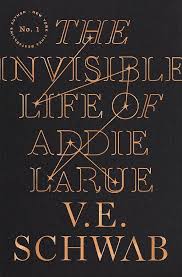Chapter II
byChapter II opens in Brooklyn, New York, on a cool March day in 2015, where Henry Strauss finds himself standing at a crossroads in his creative journey. In the quiet of his apartment, Henry shares the final page of his manuscript, The Invisible Life of Addie LaRue, with Bea, a close confidant and academic. As she reads the last few words, her reaction is immediate and filled with disbelief. Bea is taken aback by the abrupt ending, especially concerning the unresolved fate of Addie, the enigmatic protagonist, and her decision involving Luc, the elusive figure whose shadow looms over her existence. Henry, in turn, admits that he too is uncertain about how Addie’s story should conclude, revealing the struggle he’s faced over the last six months. He’s labored tirelessly to stitch together a narrative from his scattered notebooks, trying to create a coherent whole from the many fragments. Yet, despite his numerous attempts to craft a suitable ending, he realizes that any conclusion that deviates beyond their shared final moment would no longer honor Addie’s truth, but rather veer into the realm of fiction.
Bea, ever perceptive, jokingly accuses Henry of taking on the role of a method actor to preserve the authenticity of the story. Henry is caught in an internal conflict as he contemplates whether to reveal the full truth to Bea—that Addie’s story, as improbable and fantastical as it seems, is not a work of fiction but an account of real events. In his mind, he imagines that Bea and Addie would have shared a unique bond, recognizing in each other a similar spirit of independence and defiance. There’s a tenderness in Henry’s thoughts as he envisions their connection, but he chooses to hold the truth back. By doing so, he preserves the mystique of the story for Bea, allowing her to view it as a captivating tale of fiction, rather than a personal, intimate reality. This decision reveals Henry’s deeper struggle with the desire to protect the story’s enchantment, while also feeling a strong pull to acknowledge the raw, unembellished truth.
Despite the tension in their exchange, Bea expresses her admiration for the manuscript, emphasizing its brilliance. She eagerly suggests that Henry acknowledge her work in the book’s credits, drawing connections between Addie’s story and her thesis, which explores the themes of ethereal, ghostly figures in art. Henry, while grateful for her encouragement, feels a complicated mix of emotions. There’s relief in completing the narrative, but there is also a pervasive sense of sorrow that clouds his thoughts. As the final words of the manuscript settle into place, Henry becomes acutely aware of the emotional residue that lingers within him. He has written the ending, but it is clear that Addie’s presence—her essence—will never leave him entirely. The memories of their shared experiences, the moments of connection, and the vivid scenes of their life together, are already starting to fade. Despite his best efforts to hold on to every detail, he knows that the more time passes, the less he will remember of her, and that realization fills him with an unshakable sense of grief.
Henry’s reflection on his writing process and the emotional connection he feels toward Addie demonstrates the profound difficulty of retaining the essence of someone who has profoundly impacted one’s life. In crafting her story, he struggles with the inevitability of losing the tangible memories of their time together, even as he holds on to the intangible threads of her existence. His attempt to capture her identity within the pages of the book, to preserve the minutiae of her character, is both a triumph of creativity and a painful acknowledgment of life’s fleeting nature. The fact that he cannot completely hold onto her, despite his best efforts, is a sobering reminder of the transient nature of memory and human connection. The transient nature of love, memory, and even the stories we tell—these are all truths that Henry grapples with in this chapter, and they underscore the emotional weight of his narrative. It’s not simply the loss of Addie’s presence that he mourns, but the inevitability of all things fading with time, no matter how hard we try to hold on to them. The finality of her story, and the finality of his connection with her, serves as a poignant reflection of the impermanence of human relationships. As Henry lets go of the last threads of their shared past, he faces the painful yet universal truth that nothing, not even love or memory, can be fully preserved forever.


